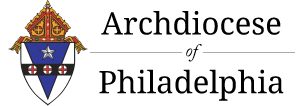How do we reconcile a loving God, the beauty and dignity of life, and the fact of human disability?
This June 23-26, that will be a key question considered in Rome as part of “Living Fully 2016: Disability, Culture and Faith – A Celebration.”
At its heart, “Living Fully” will honor persons with disabilities and highlight the unique blessings they bring to the Christian community. It comes at a special time for Catholics, during this Jubilee Year of Mercy, when each of us is invited to recognize our dependence on Christ’s redemptive grace.
“Living Fully” will involve prayer, networking and strategies for strengthening the family. This will include sharing the experiences of disability in different nations and cultural contexts, as well as developing a “charter for change” designed for attendees to bring back to their local communities to enhance respect for persons with disabilities. In these ways and more, “Living Fully” seeks a renewal of Christian life across the spectrum of ability.
One of every five Americans lives with a disability. Nonetheless, we’ve struggled and often failed as a nation in creating a wholesome response to disability, dating most notoriously to the U.S. Supreme Court’s 1927 Buck v. Bell ruling. In that 8-1 decision, the court endorsed the sterilization of a woman deemed “feeble minded” by the justices. Recalling such moments in our national story helps us see more clearly the idol of human perfectibility that can hide in the modern heart — the idea that we can create “ideal” men and women. This is a false vision of man, and not just “false” but dangerous because it’s impossible to achieve without repudiating who we are as God’s creatures.
In our own time, prenatal screening enables not only beautiful encounters with new life in the womb, but also intimate violence against any child deemed burdensome, whether by gender, or physical or cognitive disability.
St. John Paul II, in his 1983 address to the World Medical Association, stressed that we “should unceasingly make the effort to keep in mind the profound unity of the human being, in the evident interaction of all his bodily functions, but also in the unity of his bodily, affective, intellectual and spiritual dimensions.”
For Christians, any definition of health that ignores this unity of the whole is only “health” in a seriously flawed sense. Health is physical, affective, intellectual and spiritual all at once. Attention to wholeness is really the key because we’re not just a bundle of mechanical functions. There’s far more going on within us than diagnostic testing can ever reveal.
Accordingly, a person with a disability may be physically impaired and lack health in a strictly bodily sense. But human beings are vastly more than they appear.
We too often forget that we each possess infinite dignity and worth in the eyes of God. His love – which is deeper, more reliable and more enduring than any secular notions of “equality” — transcends the prejudices and judgments of our time. The truth is, none of us is really equal in any practical sense. We’re each of us different in our strengths and weaknesses, our gifts and our needs. And these differences exist as an invitation to love and support (and complete) each other in God’s name. So it is with every ability and disability; together they’re evidence that God made us for each other, not merely for ourselves. And the “Living Fully” gathering will be a timely opportunity to rediscover this bond of love; a chance for solidarity and for advancing the active participation in Christian life of those with physical and mental challenges.
The global Church can expect many fruits from “Living Fully.” But I also hope that every parish and individual believer in our own Catholic community will take to heart the importance of respecting and including persons with disabilities in the life of the Church. In the end, we’ll all be judged by our own ability – or disability – in the vocation of unselfish love.
# # #
Editor’s Note: Columns will be published each week on www.CatholicPhilly.com and can be found at https://archphila.org/category/statements-weekly-columns. In conjunction with the Archbishop’s column this week, kindly note the following:
Chosen Fathers: A Retreat for Fathers of Children with Disabilities: On Saturday, April 30 at St. Charles Seminary, the Office for Life and Family and the Office for Persons with Disabilities will host a retreat for fathers and grandfathers of children with disabilities. The retreat will be led by Doug Keck, a Chosen Father, who is the president of EWTN and an award winning TV/Radio host. To register online go to www.opdarchphilly.org . For more information call 215-587-3530 or email [email protected] . Click here for link.
http://opdarchphilly.org/wp-content/uploads/2016/02/Chosen-Fathers-April-30-2016-web.pdf
Mothers of Children with Disabilities Retreat: On Tuesday, May 3 at Malvern Retreat House, Fr. Dennis O’Donnell will direct a retreat for mothers and grandmothers who are raising children with disabilities and also those who have adult children with disabilities. There will be time to pray, reflect, and chat with other mothers. To register online go to www.opdarchphilly.com. For more information please contact Malvern Retreat House at 610-644-0400 or the Office for Persons with Disabilities, Archdiocese of Philadelphia at 215-587-3530. Click here for link.
Contact:
Contact: Kenneth A. Gavin
Chief Communications Officer
215-587-3747 (office)






